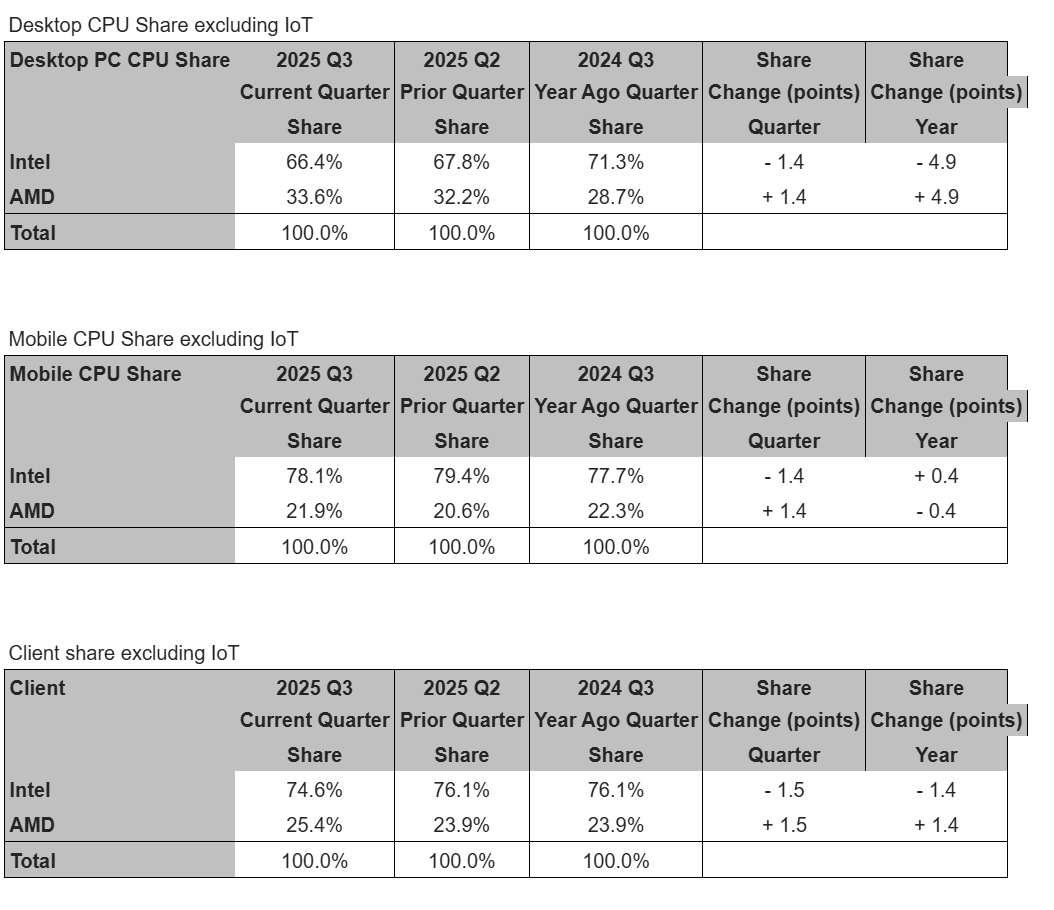AMD's share of the desktop processor market continued to rise in the third quarter, a market researcher said, while Intel's decision to exit the lower end of the mobile market left the two players relatively stable.
A report from Mercury Research said x86 market shipments in the third quarter were well below seasonal growth, although this was due to lower IoT and SoC shipments, which grew significantly in the second quarter. Mercury has reserved specific numbers for its customers.
However, excluding the impact of IoT and SoC, AMD's market share in the x86 market compared to Intel grew slightly, increasing by 1.6 percentage points to 25.6 percent of the market. Intel retained the remaining 74.4 percent. Arm's overall share (including servers) of all x86 shipments is estimated at 11.6 percent, up from 10.9 percent in the second quarter, analyst Dean McCarron wrote.
“ARM customer activity was slightly higher, largely due to Apple's growth in the third quarter and what we believe was a slight increase in ARM-based Chromebooks,” McCarron said.
AMD's share of the desktop PC market continues to growhelped by the Ryzen X3D product line outperforming Intel's own chips. That trend continued, with the company up 4.9 percentage points from the same period last year and now controlling a third of the desktop market (33.6 percent), Mercury found.
In Intel's third-quarter earnings report, the company told Wall Street it was reducing its emphasis on delivering “small cores,” or low-end PC products, and focusing more on semiconductor components for servers. This had an impact on the share of Intel mobile devices.
“Intel was able to increase shipments, but well below seasonal levels and nowhere near the same pace as AMD, so Intel lost AMD's share in mobile processors,” Mercury's McCarron wrote.

That still leaves AMD with about 20 percent of the market, the traditional ratio between the two companies. The company holds 21.9 percent of the market, down 0.4 percentage points from last year. According to Mercury, Intel controls 78.1% of the mobile PC market.








